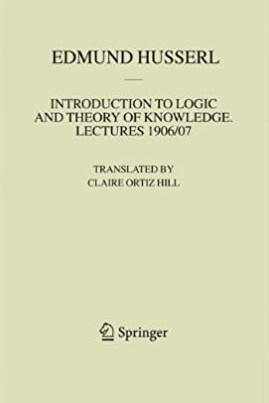Repository | Book | Chapter

(2008) Introduction to logic and theory of knowledge, Dordrecht, Springer.
The question of background also interests us here with respect to the kind of consciousness of the experiential moments of perception itself. One hard question is to decide in which way the sensations are conscious in perception and in which way, on the other hand, the character of the apprehending of the perception is.Perception is, psychologically speaking, the experience we have when, for example, we see a tree, "for, before our eyes stands the tree" with definitely appearing sides. We do not see the sensations. Our perceiving attention, believing, our apperceptive objectifying are not directed towards them. And yet they are "conscious". What does "conscious" mean here, if not perceived?They do not belong to the objective background, for that is a thing background. The house has its spatial environment. It stands amid such and such things. The sensations are not things in the background. It is evident, however, that from the simple turning toward the house, a different turning, a "reflection" upon the perception and its content, is possible. It is evident that this possibility belongs to the essence of the perception. But, reflection is, nevertheless, perception that is related to the perception and to its content. We know how this content is given in reflective perception. It is given there as perceived. How, though, is the content of the perception, for example, its sensation content, given before the reflection, how is it "on hand" in it?
Publication details
DOI: 10.1007/978-1-4020-6727-3_7
Full citation:
Husserl, E. (2008). The lower forms of objectification, in Introduction to logic and theory of knowledge, Dordrecht, Springer, pp. 241-271.
This document is unfortunately not available for download at the moment.



